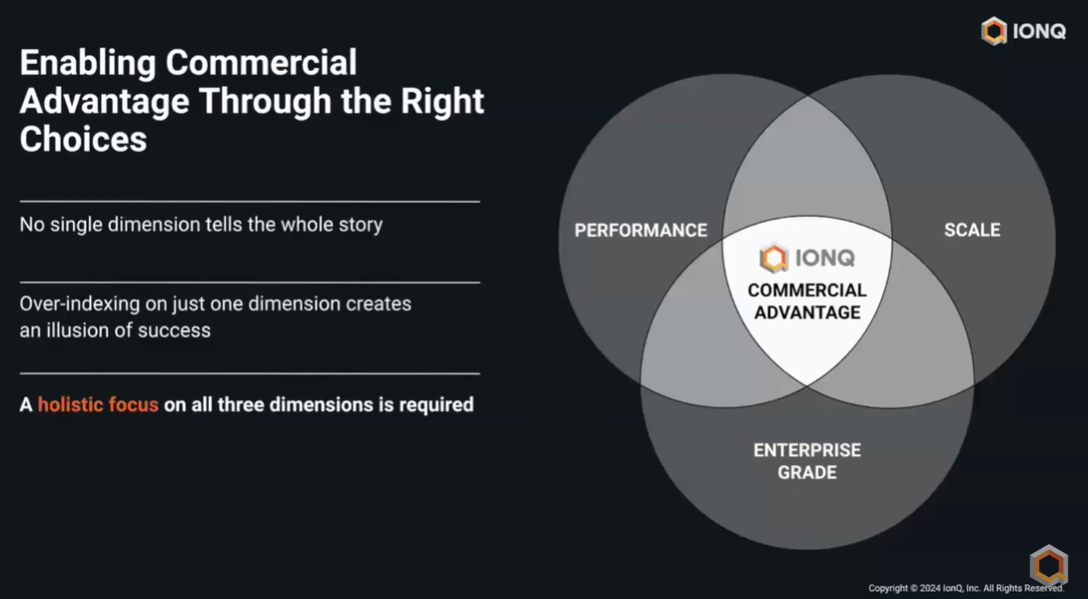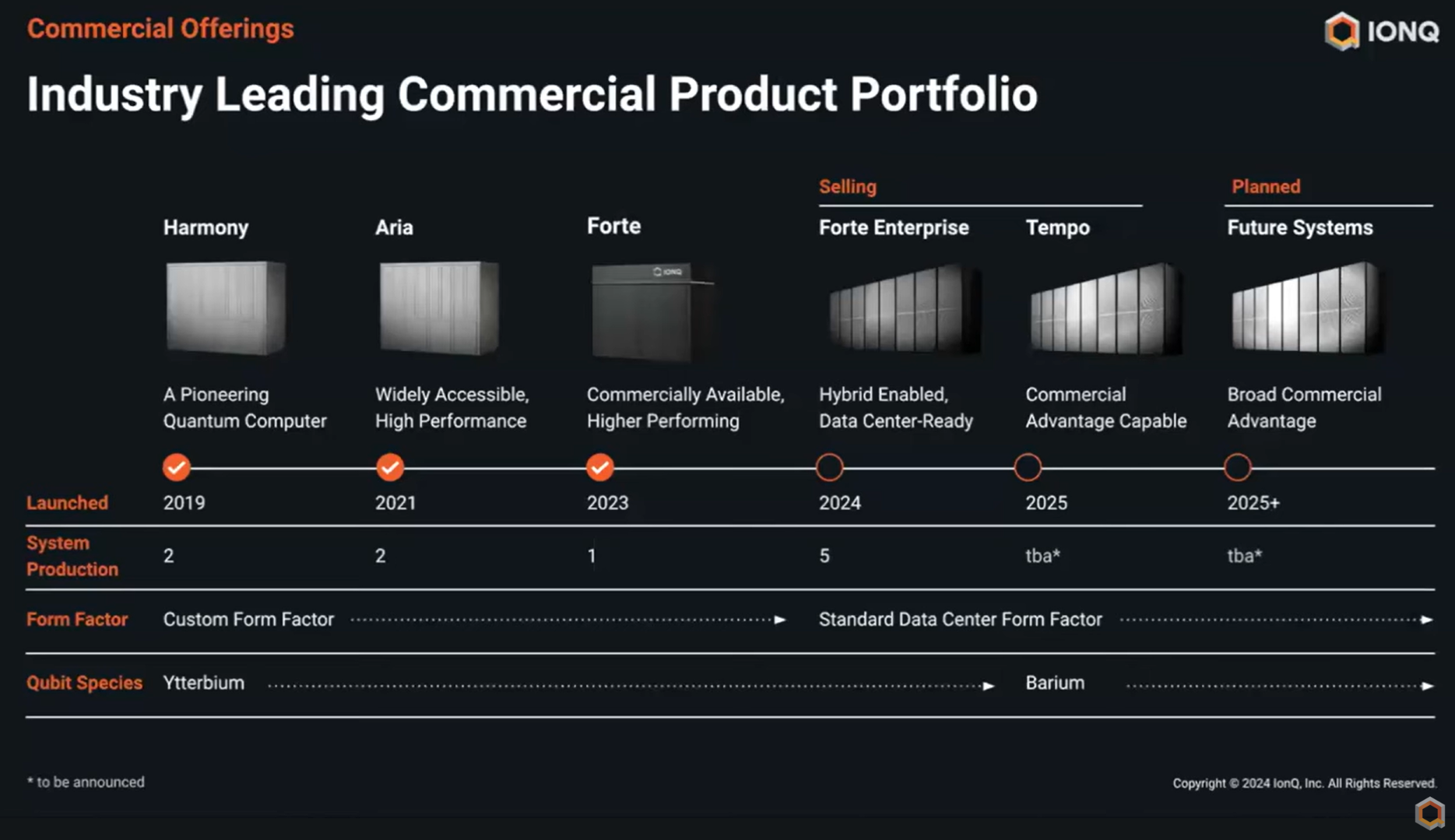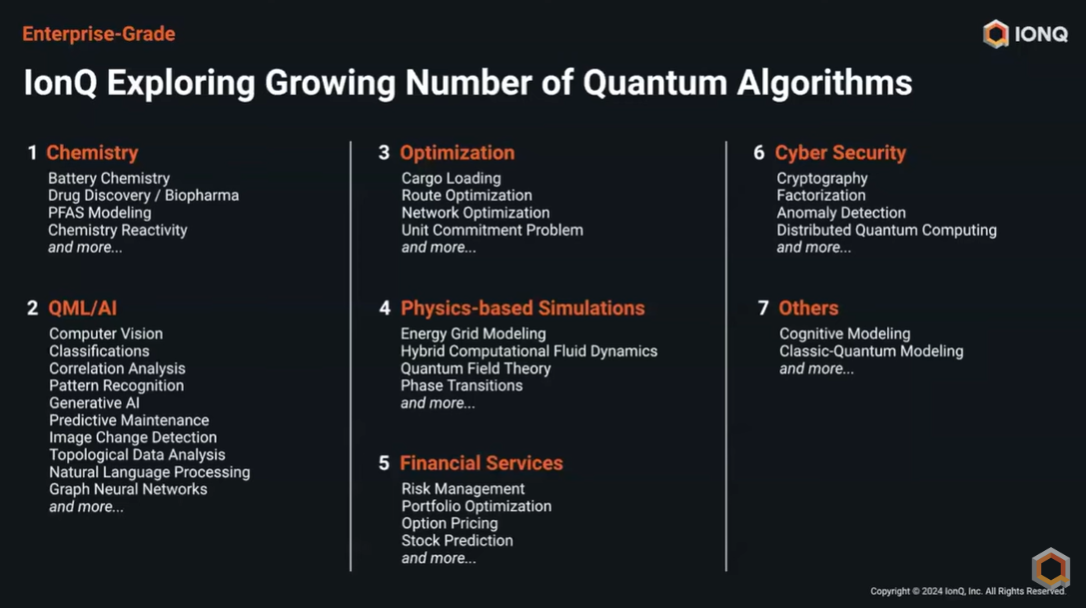IonQ outlined it roadmap for its quantum computing stack as well as various use cases as it aims to create enterprise grade infrastructure that could offload GPU workloads if successful.
In a webinar, IonQ CEO Peter Chapman said the company's strategy revolves around performance, scale and enterprise grade infrastructure. If those pillars are weighted equally, IonQ will generate commercial advantage for its quantum computers.
IonQ is approaching $100 million in annual bookings.
Chapman positioned IonQ as a company that's defining use cases and doubling down on the ones with the most promise. "I think we're homing in on exactly what those superpowers are," said Chapman.
Chemistry and quantum drug discovery have emerged as two primary use cases. The chemistry use cases were barely mentioned during IonQ's pre-IPO roadshow, but has emerged as a go-to enterprise application. "There is some brilliant work on the algorithmic chemistry coming," said Chapman.
Constellation ShortLists™
Generative AI is another area where IonQ can add value, said Chapman, who said IonQ has been focused on machine learning since inception. "One of the new things that we're doing this year is applying quantum to large language models," said Chapman. "We're just at the beginning of that journey, but I hope to have results within a year or so."
If successful, Chapman said IonQ "will be able to offload significant workloads from GPUs and significantly reduce energy requirements for data centers and LLMs."
The focus of IonQ's talk is about developing performance with its roadmap, lowering errors and then scaling. "We hope to find commercially significant applications, but the true promise of quantum will need a lot more qubits and faster gate speeds," said Chapman. "Just as importantly we'll need to network these quantum computers and reduce the costs to make them affordable. Future quantum computers are going to be made up of network individual machines so the cost per qubit comes down as computational power increases."
Chapman said the plan is not to over index on performance, scale or enterprise grade because the pillars have to be in balance.

IonQ SVP of Engineering & Technology Dean Kassmann walked through the IonQ roadmap, developing multi-core quantum infrastructure and systems that go beyond what can be simulated on a classical computer. Kassmann also emphasized modular designs, systems that will be put into data centers with classical infrastructure and software that just works.
The plan for IonQ is to get to a point where it can stack its qubits and technology advances together. "A milestone we have planned for 2025 is physical qubits that are photonically interconnected," said Kassmann. "We have a plan set out where we continually build up numbers of qubits by connecting modules together."

Kassmann added that IonQ is focusing on photonic interconnects between quantum systems to scale as well as smaller vacuum packages and refining components. "The work we're doing needs to be on-ramped into the larger engineering pipeline but represents our thought process to scale 2-, 5-, 10-years from now," he said.
Margaret Arakawa, CMO of IonQ, is a Microsoft alum that is focusing on democratizing quantum computing and scaling with its US manufacturing center in Seattle. To sell quantum--an enterprise category that has typically been more about R&D labs--IonQ plans to lead into use cases and solving big problems.
Some use cases include solving for corrosion in the US Navy, which is an expensive problem for the Department of Defense, Airbus optimization and flight orchestration. "We have an applications and algorithm team working on the most important groundbreaking areas a quantum computer can actually address," she said.

In the end, AI may wind up being the play for quantum computing. Arakawa and Chapman both spoke to it and the general idea is to focus on the part of AI that quantum computing can do better than supercomputers.
More quantum computing:
- Classiq CEO Minerbi on the intersection of quantum computing, HPC and use cases
- Quantinuum, Microsoft claim quantum reliability breakthrough
- IBM launches latest Heron quantum processor, IBM Quantum System Two
- Quantinuum raises $300 million, valued at $5 billion
- Will IonQ make quantum computing enterprise relevant in 2025?
- Why your quantum computing vendors are going to look familiar


